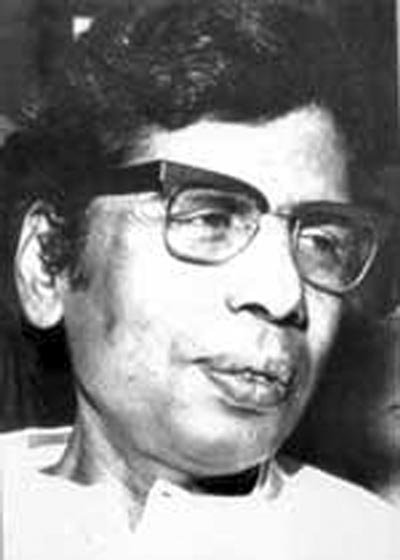
Phanishwar Nath Renu is a revolutionary novelist of the post-Premchand era of the Hindi literature. He was the voice of the contemporary rural India and among the pioneers to bring regional voices into the mainstream Hindi literature.
He was born on 4th March 1921 in Aurahi Hingna in the district of Purnia. He received his primary education in Araria and Forbesganj. He passed his Matriculation from Viratnagar Adarsh Vidyalaya (school), Viratnagar, Nepal. And Intermediate from Kashi Hindu Vishvavidyalay (university) in 1942. He actively participated in the Indian freedom struggle in 1942. He was even involved in the Nepali revolutionary struggle in 1950 against the dictatorship and oppression of the Rana’s which led in the establishment of democracy in Nepal.
Phanishwar Nath Renu’s writings had an intimate feeling with the reader, which he developed by using the local flavour of the language instead of Khadi Boli. Few of the novels written by him are Maila Anchal, Parti Parikatha, Juloos, Deerghtapa, Kitne Chaurahe and Paltu Babu Road. Among all his works Maila Anchal (1954) is his masterpiece. He was honoured with Padma Shri by the Government of India for this novel. This novel mainly depicts the contemporary social life of the people who are poor and backward. It is considered to be one of the finest novels ever written in Hindi literature. It depicts the landscape of Bihar, the division of society on the basis of caste, Indian struggle of independence, and the true face of rural India. It has introduced a new form of novel by radically changing the structure and narrative style of Hindi novels.
Phanishwar Nath Renu even wrote short stories namely Maare Gaye Gulfam, Ek Adim Ratri Ki Mehak, Lal Pan Ki Begum, Panchlight, Thes Samvadiya, Tabe Ekla Chalo Re, and few collection of stories include Thumri Agnikhor, and Acche Aadmi. His short story Panchlight is known for its pleasing portrayal of human behaviour. His writings are very similar to Premchand’s writings especially in respect of choice of themes. Another short story Maare Gaye Gulfam was made into a film entitled Teesri Kasam.
This legendary writer left us on 11th April 1977.

